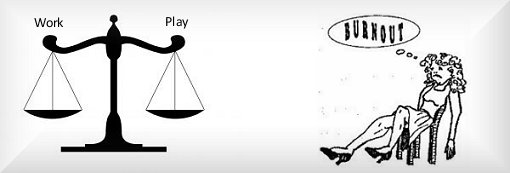Health and Beauty
Burnout: Who are the sufferers?
Burnout is a psychological term that refers to long-term exhaustion and diminished interest in work. This is a curse of modern times and not only affects the well-being of men and women, it is becoming an epidemic and is having consequences on companies and on society as a whole.

Denial is no longer an option and it is a subject that must be addressed. The fault is a series of circumstances that has become out of control and the responsibility lies with the employee, the company and the management.
The European Institute for Intervention and Research on Burn Out (EIIRBO) is a network of European coaches and consultants. Every specialist in the team is involved in the prevention and management of burnout and stress along with their consequences in the work environment (harassment, depression, etc.)
According to one report, more than one in four workers was been affected by work-related stress in the European Union. And there are hundreds of thousands of people suffering without even knowing.
Who are the sufferers?
Sufferers are most likely to be talented, enthusiastic and motivated employees. And initially at least, they never complain. But by the time the stone drops it's usually too late and the result is having to leave the company a little worse for wear.
The symptoms of Burnout are: insomnia, cholesterol, high blood pressure, gastrointestinal disorders (ulcers), pre-diabetes, thyroid problems, disorders of heart rhythm, heart attack, chronic pain (back), collapse of the immune system (recurrent infections). Depression is another common sympton associated with Burnout.

Dealing with Burnout: The "Three R" Approach
- Recognize – Watch for the warning signs of burnout
- Reverse – Undo the damage by managing stress and seeking support
- Resilience – Build your resilience to stress by taking care of your physical and emotional health
Tell-telling signs to look out for:
Physical exhaustion, difficulty in concentration, memory loss, difficulties in making decisions and emotional outbursts such as excessive crying, anger, feelings of despair. And a total lack of interest in all things professional.
Another contributing factor to Burnout is the imbalance between work and private life. Emails that constantly plague our evenings at home, professional calls during weekends or holidays... Work gradually creeping into home life which then deprives employees of the necessary timeout.
Constant pressure from the workplace with increased work loads and shorter deadlines and reminders of uncertain futures, makes the sufferer feel a lack of self worth leading to detachment and depression.
Solutions: Companies need to recognise the signs and act quickly when employees start to demonstrate issues relating to Burnout and be able to offer professionals experienced in these cases.
For a company, prevention is better than cure and investment in this area will only have positive results. Happy employees equals happy customers and of course, happy company. A win win!
Prevention is better than cure and here are some valuable tips:
- Start the day with a relaxing ritual. Rather than jumping out of bed as soon as you wake up, spend at least fifteen minutes meditating, writing in your journal, doing gentle stretches, or reading something that inspires you.
- Adopt healthy eating, exercising, and sleeping habits. When you eat right, engage in regular physical activity, and get plenty of rest, you have the energy and resilience to deal with life’s hassles and demands.
- Set boundaries. Don’t overextend yourself. Learn how to say “no” to requests on your time. If you find this difficult, remind yourself that saying “no” allows you to say “yes” to the things that you truly want to do.
- Take a daily break from technology. Set a time each day when you completely disconnect. Put away your laptop, turn off your phone, and stop checking email.
- Nourish your creative side. Creativity is a powerful antidote to burnout. Try something new, start a fun project, or resume a favourite hobby. Choose activities that have nothing to do with work.
- Learn how to manage stress. When you’re on the road to burnout, you may feel helpless. But you have a lot more control over stress than you may think.
Everything in moderation is something worth investing in and the investment comes with achieving quality balance between work and play.



